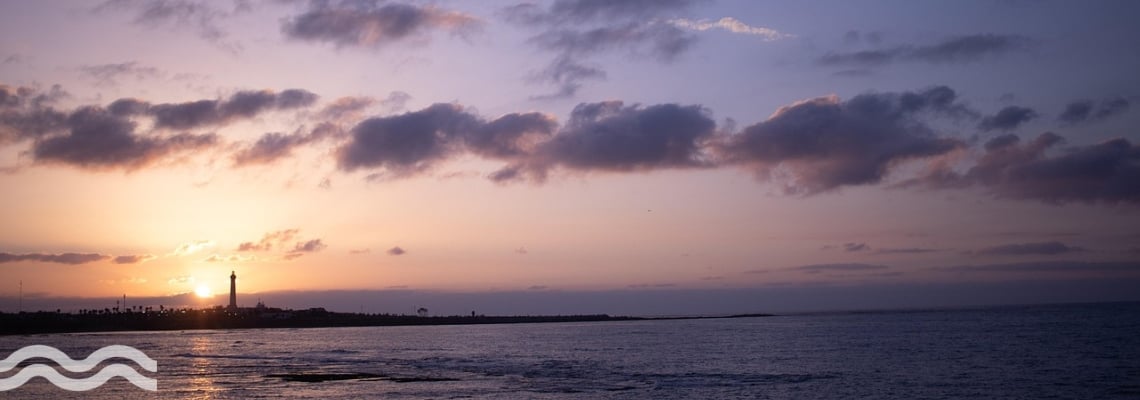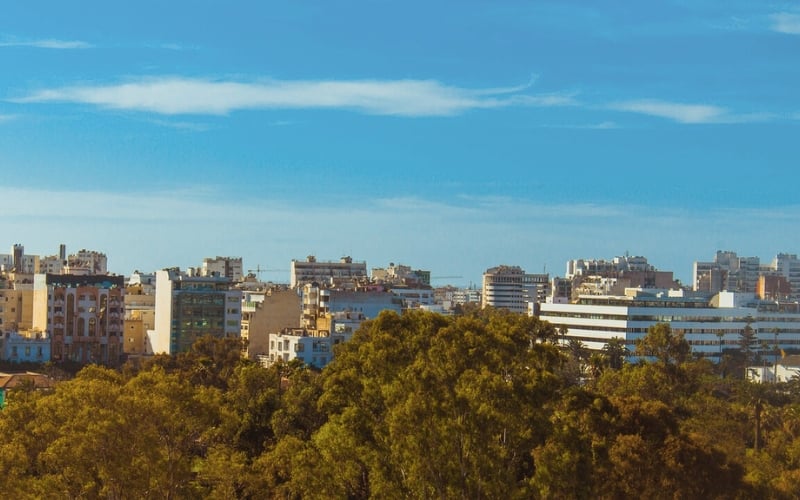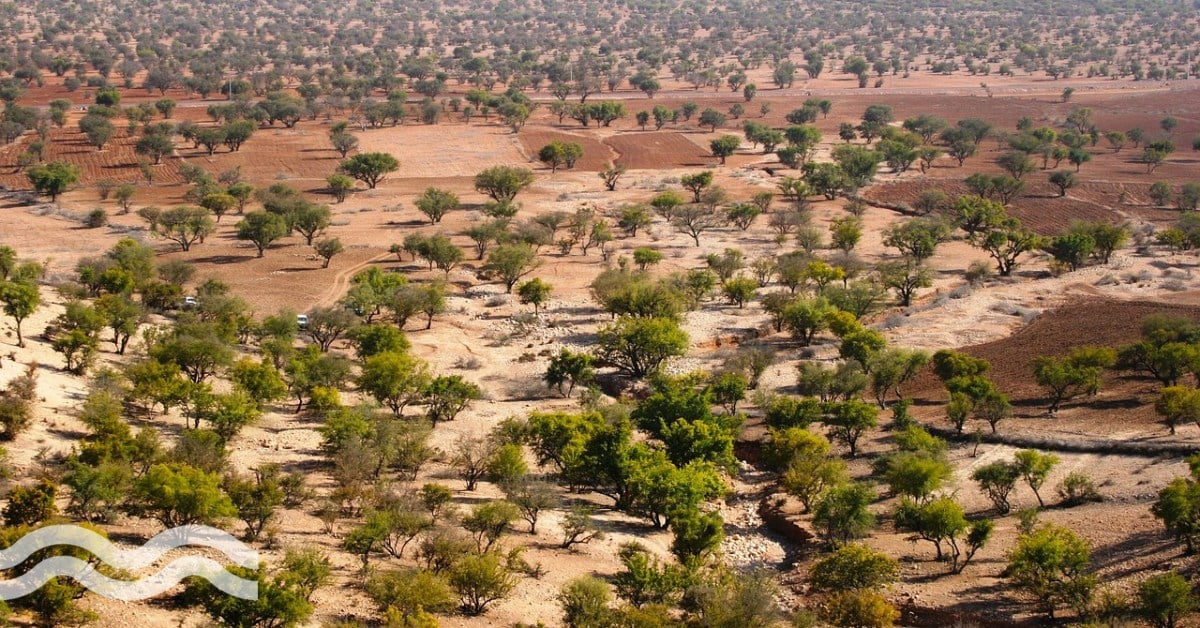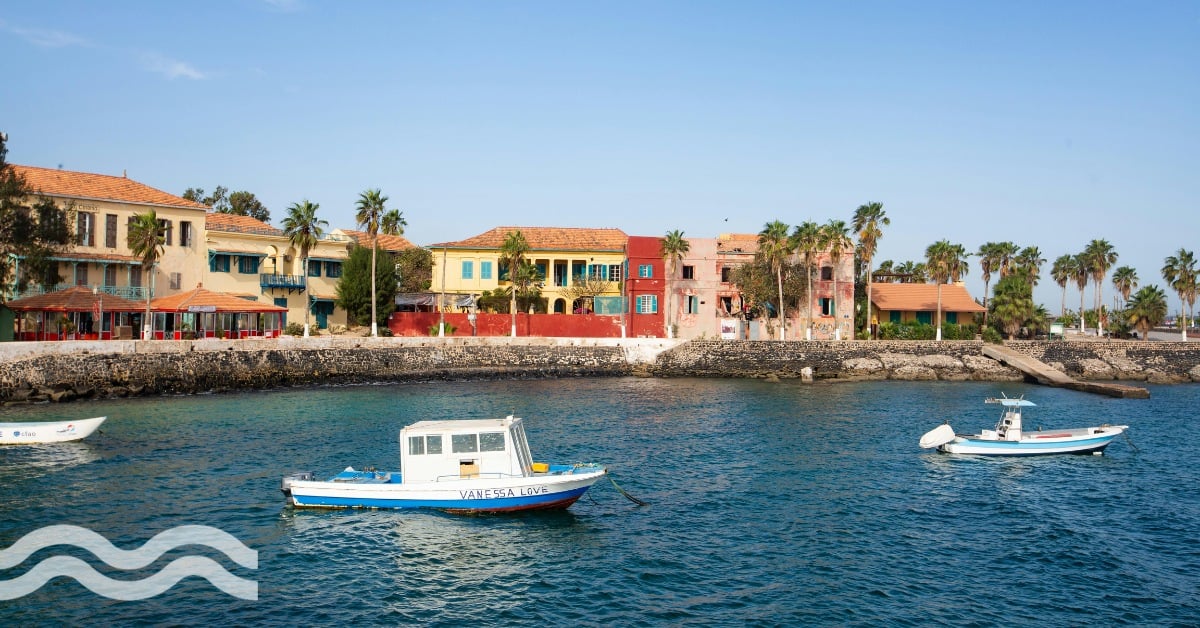
ACCIONA is building a desalination plant in Morocco that will become one of the biggest in Africa and also the largest in the world powered entirely by renewable energy.
Morocco’s desalination drive
Morocco is facing unprecedented water stress issues and is currently experiencing its worst drought for 40 years. This has left reservoirs at historically low levels, threatening agriculture, drinking water supplies and, more broadly, the country's economy. As such, the country is pursuing a strategy that relies heavily on desalinated seawater to secure water for its residents and agricultural sector.
At the beginning of 2024, Nizar Baraka, Morocco’s minister of Infrastructure and Water, told local news that the country wanted to produce half of its drinking water by 2030. As such, the country has built several new facilities and commissioned even more in the past few years alone.
In November 2024, Veolia announced it had won the tender to build a plant on the Atlantic coast, near Rabat, that would supply drinking water to more than nine million people.
The completed plant in Rabat will have a capacity 822,000 m3 of drinking water per day, or 300 million m3 per year, and will ensure water security for the Rabat-Salé-Kénitra and Fès-Meknès regions.

Even bigger than the Rabat plant
The latest large-scale desalination project in Morocco is set to eclipse the Rabat plant. It is set to be built near Casablanca and when finished will have a production capacity of 300 million m³ per year, supplying drinking water to 7.5 million people and supporting potential agricultural use.
The desalination process will use reverse osmosis technology powered entirely by the 360MW Bir Anzarane wind farm, which will dedicate 47 per cent of its output to the plant.
The use of renewable energy overcomes one of the challenges of relying heavily on a desalination water security policy. Traditionally energy-intensive, Morocco like many other countries is exploring the use of renewable energy as a means to bring operational costs down.
A plant built upon a private-public partnership
The Casablanca plant will be realised as part of a private-public partnership contract. The public contract will be held with Morocco’s Office National de l'Électricité et de l'Eau Potable, while the plant will be built by a private consortium.
The Al Baidaa Desalination Company consortium, of which ACCIONA has the largest share (50 per cent), followed by Green of Africa (45 per cent), a privately owned company, specialising in the development, financing and operation of renewable energy power plants, and AfriquiaGaz (five per cent), an energy supply specialist based in Casablanca.
It will be located in Sidi Rahal, in the Greater Casablanca area, 40 kilometres south of the country’s economic capital, and will cost €613 million once finished. The project will be financed through 80 per cent debt and 20 per cent equity.
ACCIONA will be responsible for the construction, operation, and maintenance of the plant for a 27-year period. It will be the second plant built by the company in North Africa, following completion of the Fouka desalination plant in Algeria in 2007.
Casablanca’s growing water need
Addressing Casablanca’s city council in August 2024, mayor Nabila Rmili revealed that water flow in Casablanca has been reduced by 10 per cent following the recent droughts, stating: “We no longer have sufficient water reserves, which requires concerted efforts to avoid water cuts in the city at certain times.”
At the time, plans were already under way for the desalination plant in Sidi Rahal, and work was underway to connect the city to the Jorf Lasfar desalination plant.
The new plant will benefit the residents of Casablanca, Settat, Berrechid, and Bir Jdid, as well as neighbouring regions.
Morocco’s water strategy
Both the Casablanca and Rabat desalination plants forms part of the Moroccan national energy strategy, launched by King Mohammed VI, which aims to strengthen water supply security and to face the challenges of climate.
The deal also builds towards the nation's National Water Plan, agreed in 2020, which set out an investment plan to restore water availability in the country. In 2023, King Mohammed VI allocated an additional budget in support of the National Program for Drinking Water Supply and Irrigation 2020-2027 (a subset of the National Water Plan), which included plans for three new desalination plants.


